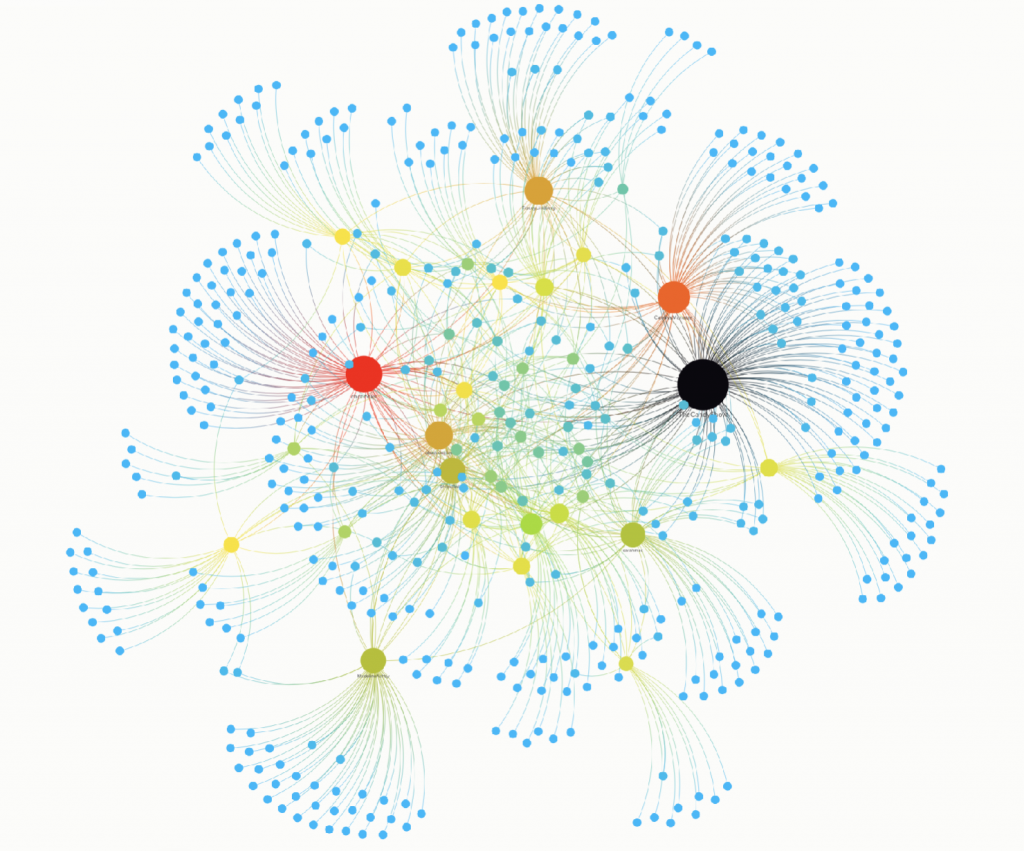We conceive of our project as a reading of Canada Reads from the ground up by attending to the conversations, debates, and discussions that occur outside of the official discourse endorsed by—and broadcast on—the CBC. Where extant scholarship has tended towards interpreting Canada Reads according to the unifying thesis that underlies the program, we are interested in understanding the diverse ways in which Canadians (and other listeners) talk about the program, the books, and culture.
In her assessment of Canada Reads, Kamboureli argues that the program’s “panel talk is symptomatic of the state of cultural affairs in Canada today,” particularly as a culture of celebrity enables a narration of nation that revels in a commodified form of national identity and an empty politics of difference. She links the public pedagogical function of Canada Reads to literature’s decreased critical capacity within new forms of modernity, and to the increased desire to “fashion the political unconscious of people in terms that serve the raison d’être of the state.” For her, “The public memory engineered by national pedagogy through the culture of celebrity … engages the past … in order to restructure the present and remember the future.” While, “literature and the humanities” achieve “a circulation they never enjoyed before,” that circulation serves the interests of reimagining the nation and its citizens as complicit nodes within a globalized network of capitalist exchange.

While we take seriously Kamboureli’s critique of the modes of national pedagogy at work in Canada Reads, the entwinement of the temporality of the nation with a commodified modernity, and the manner in which a culture of celebrity shapes public discourse around literature, we are also interested in understanding how Canadians respond to the program’s mandate. Is the panelists’ talk “symptomatic” as Kamboureli suggests or is that too singular, too uniform an expression of what occurs on the program? In what ways do listeners and readers take up the terms that the show offers? Is this nationalist pedagogy effective in proposing a vision of nation or national literature, or do listeners transform the discourse in unexpected ways? As scholars and observers, how can we interpret listeners’ online performances of citizenship that we regularly observe in concert with the broadcasts? How do the digital spaces in which these discussions occur resolve, aggravate, or intensify the “paradoxes that inform, on the one hand, the location of culture in Canadian society today and, on the other, the complicity that marks the relationship between the institutions that facilitate and disseminate the production of literature and the state itself?” Thus, our project responds to Kamboureli’s work by trying to understand the efficacy of this national pedagogy and the vocabulary by which listeners transform the program’s discourse.
Danielle Fuller and DeNel Rehberg Sedo have done some of this work in their assessment of Canada Reads and other public mass reading events (MREs). Their Beyond the Book project assesses Canada Reads in the context of the rise of MREs and combines their analysis of these events with reader responses to the program. In their early assessment of Canada Reads,
Like Kamboureli, Fuller and Rehberg Sedo are concerned with the manner in which the culture of blockbuster and celebrity transforms literary discourse.
Similarly, for Julie Rak and Danielle Fuller, “the ideological work that Canada Reads generally performs for its audiences is to show that reading and sharing books by Canadians are inherently transformative and nationally reparative acts.”. For Fuller, Rehberg Sedo, Rak, Moss, Kamboureli and others, their interpretation of Canada Reads is based primarily on how the program performs its own ideological position.
Yet, if all acts of performance or interpellation are bidirectional, then how are these acts of national performance and pedagogy received by the audience? If the program interpellates Canadians to construct their identity according to both the approved readings of books as well as a meta-discourse of what books can do, then how do Canadians respond? Do they align with the vision of literature as “inherently transformative” and “nationally reparative” or are their responses more complex?